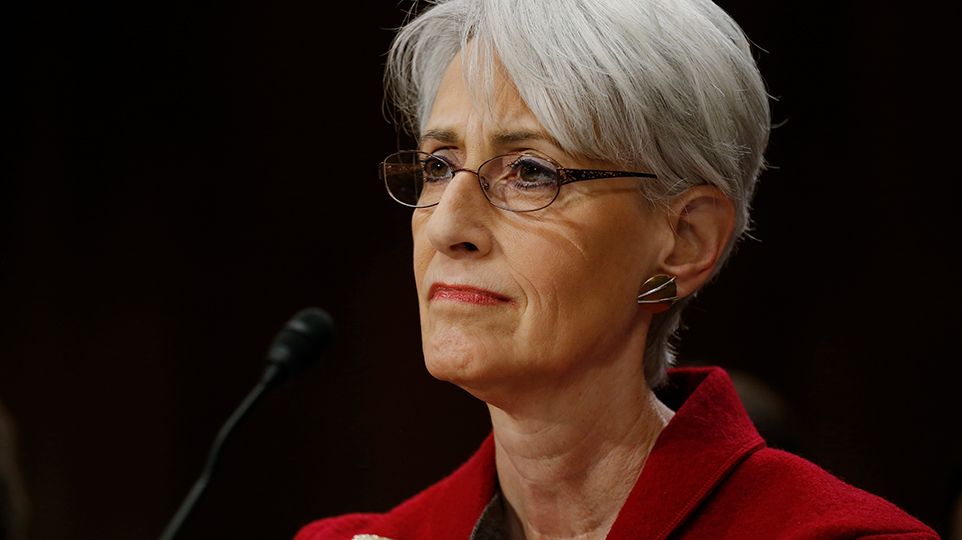
Editor's note: CGTN's First Voice provides instant commentary on breaking stories. The daily column clarifies emerging issues and better defines the news agenda, offering a Chinese perspective on the latest global events.
On July 26, Chinese Vice Foreign Minister Xie Feng talked with Deputy U.S. Secretary of State Wendy Sherman in the city of Tianjin. Xie described the relationship between the two powers as a "stalemate" that faces serious difficulties, and condemned America's rendering of China as an "imagined enemy" as the fundamental problem. He also presented two lists to the U.S. which includes asking the U.S. to remove sanctions on Chinese officials and expressing concerns over visa restrictions on Chinese students.
The United States is a paranoid hegemon. Xie discussed the phenomenon of the "Sputnik moment" in America's foreign policy, the tendency that the U.S. politicians are easily led to feel insecure by the achievements or actions of a foreign country. That insecurity goes so far as to waging a militantly adversarial foreign policy to secure U.S. global dominance. America is a country that is looking for and always seeking an enemy of some kind, and frequently elicits mass hysteria through its media channels, demonizing the "opponent" in order to justify and win support for its aggressive policies, proclaiming threats to the world that do not exist.
This kind of zero-sum thinking and binary view of world affairs which dictates that there can never be long-lasting peace nor substantial compromises as the world, in U.S.' view, has to accommodate America's vision. It is etched into America's DNA, and most recently demonstrated by the Biden administration's seamless inheritance and wholehearted embrace of the confrontational approach of the previous Trump administration. It has continued the smear campaign against Chinese companies to meet protectionist ends, proliferated lies of genocide and forced labor, attempted to block China's advances in technology, sought to try and build coalitions of allies to isolate China and undermine business in Xinjiang and Hong Kong.

U.S. Deputy Secretary of State Wendy Sherman. /Reuters
U.S. Deputy Secretary of State Wendy Sherman. /Reuters
Talk of collaboration and cooperation is quickly turning into window dressing for the more abrasive and erratic nature of U.S. foreign policy. While Sherman wanted to talk about the "rules" of competition between the two powers, actions speak louder than words and the United States had shown little willingness to respect China's interests. Instead, it continued to preach a one-sided mantra.
For example, despite the U.S. placing an ever-growing number of sanctions on China, to receive reciprocal counter-sanctions is deemed an outrage and contrary to the rule of law. The United States complains about "China's economic practices" while blacklisting hundreds of companies, putting pressure on foreign countries to do the same and yet dictating it has a divine right to more market access within China.
Likewise, it hypocritically yields the rhetoric of human rights to smear China while committing grotesque human rights abuses both at home and abroad itself. It is turning a blind eye on atrocities in many allied countries. Thus, when it talks of "cooperation" there is no good faith, and there is no credibility, it's only about making more demands and about how the U.S. can advance its interests at China's expense.
China won't have any of this. The relationship between the two powers must be that of equals, and based on mutual respect for common interests and a shared future. China will never cave to American bullying and will never tolerate attempts to undermine its national sovereignty or its economic interests. China doesn't endeavor to be an enemy of the United States, but will not stand idly by if it is treated like one. China welcomes good faith and genuine partnership, not lectures, preaching and subordinations.
(If you want to contribute and have specific expertise, please contact us at opinions@cgtn.com.)

